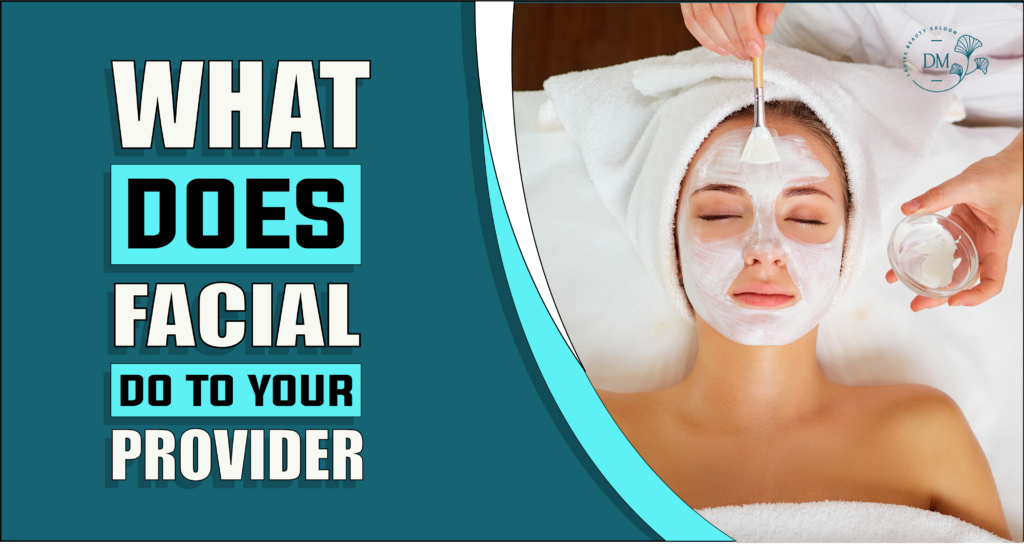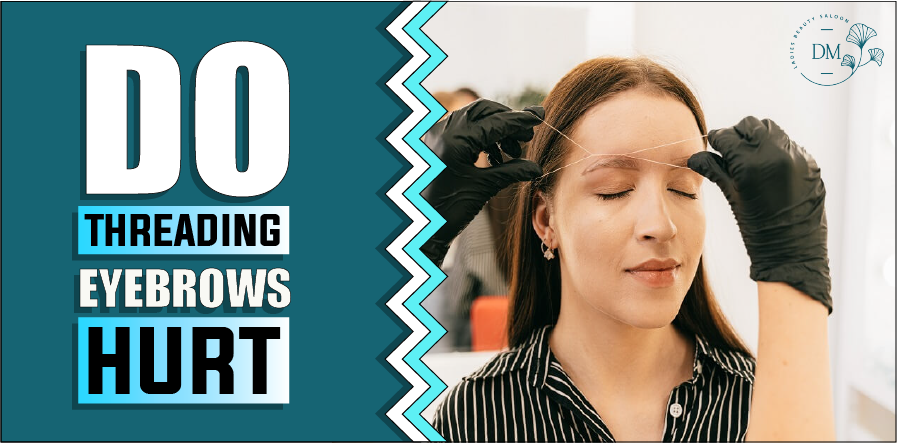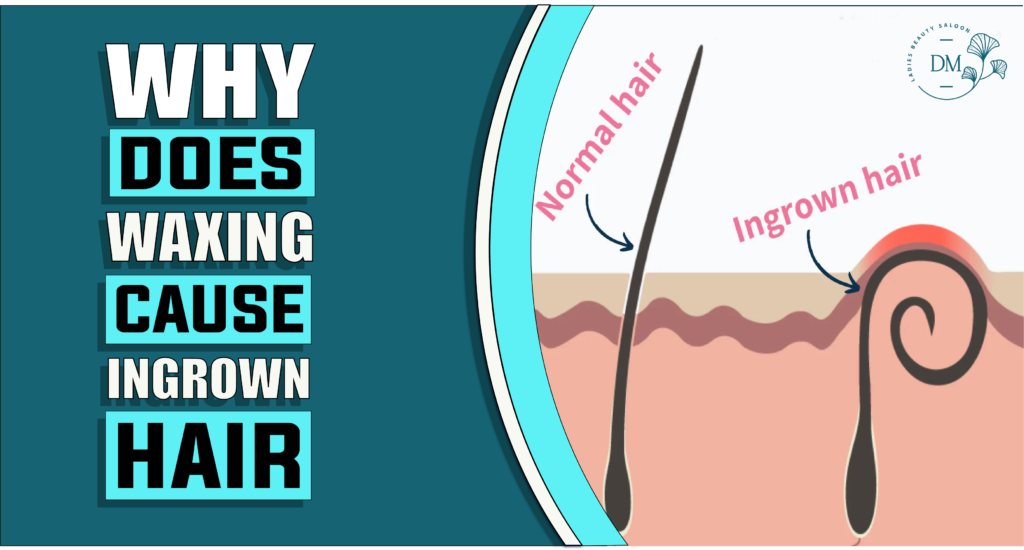A facial is one of the most popular skincare treatments, designed to cleanse, rejuvenate, and enhance the skin’s overall health. It involves multiple steps, including cleansing, exfoliation, extraction, hydration, and massage, all tailored to suit different skin types and concerns. But what exactly does a facial do to your skin? While many people turn to facials for relaxation and a glowing complexion, understanding their impact on your skin is essential. From boosting circulation to unclogging pores, facials offer various benefits, but they may also have potential side effects depending on the techniques and products used. This article explores what a facial is, its benefits, possible side effects, the ideal treatment frequency, and how to select the best one for your skin. Let’s uncover the secrets behind facials and how they can transform your skincare routine!
What Is a Facial?
A facial is a skincare treatment designed to cleanse, exfoliate, and nourish the skin, leaving it fresh and glowing. It’s one of the best ways to pamper yourself while improving your skin’s health. Facials are customized based on your skin type and concerns, whether you need deep hydration, acne treatment, anti-aging care, or a relaxing experience.
A standard facial typically includes cleansing to remove dirt and oil, exfoliation to slough off dead skin cells, and gentle steam to open up pores. This is followed by extractions (if needed), a soothing face mask, and a hydrating moisturizer. Many facials also include a relaxing facial massage to boost circulation and give your skin a radiant glow.
Regularly getting a facial helps maintain clear, smooth, and youthful-looking skin. It can also reduce stress and improve overall well-being. Whether you’re preparing for a special event or want to give your skin extra care, a facial is a perfect way to feel refreshed and confident.

What Does a Facial Do to Your Skin?
A facial is more than just a relaxing beauty treatment—it’s a powerful way to care for your skin. It deeply cleanses, removes dead skin cells, and nourishes your face, leaving your skin fresh and glowing. Facials help unclog pores, reduce blackheads, and improve overall skin texture, making your complexion smoother and more even.
One of the biggest benefits of a facial is hydration. Dry skin can make fine lines and wrinkles more noticeable, but a good facial replenishes moisture, making your skin feel soft and plump. Many facials include serums and masks packed with vitamins and antioxidants, which help fight signs of aging and keep your skin youthful.
Facials also improve blood circulation, which enhances your skin’s natural glow. The gentle massage techniques in facials stimulate blood flow, promoting collagen production and giving your skin a healthier appearance. If you struggle with acne or sensitive skin, professional facials can help calm redness, reduce breakouts, and balance oil production.
In short, facials are a must-have in any skincare routine. Whether you want to detox your skin, slow down aging, or enjoy a moment of self-care, a facial can leave your skin feeling refreshed, radiant, and deeply nourished.
Potential Side Effects of Facials
Facials are a great way to keep your skin glowing and healthy, but sometimes they can cause unwanted reactions. While most facials are safe, your skin may respond differently based on your skin type and sensitivity. Here are some potential side effects of facials that you should be aware of:
1: Redness and Irritation –
After a facial, your skin might look slightly red or feel irritated due to exfoliation and extraction. This is normal and usually fades within a few hours. We use soothing products at Du Monde Ladies Beauty Salon to minimize discomfort.
2: Breakouts and Pimples –
Deep cleansing facials can sometimes bring out hidden impurities, causing temporary breakouts. This is a sign that your skin is detoxifying. Our experts use high-quality, non-comedogenic products suited for your skin type to reduce the risk.
3: Dryness and Peeling –
Some facials involve strong exfoliation, leading to temporary dryness or peeling. This is part of the skin renewal process. Keeping your skin moisturized and drinking plenty of water will help maintain hydration.
4: Increased Sensitivity –
After a facial, your skin may be more sensitive to sunlight and certain skincare products. Applying sunscreen is essential to protect your fresh, glowing skin. Our professionals always recommend post-facial care to keep your skin safe.
5: Allergic Reactions –
Some women may experience mild allergic reactions, such as itching or rashes, due to certain ingredients. At Du Monde Ladies Beauty Salon, we carefully assess your skin and use hypoallergenic products when needed.

To ensure the best results, always follow the aftercare tips provided by our skincare experts. Book your next facial at Du Monde Ladies Beauty Salon and enjoy a luxurious, skin-friendly experience tailored to your needs!
How Often Should You Get a Facial?
Getting a facial is one of the best ways to keep your skin healthy, glowing, and youthful. But how often should you get one? The answer depends on your skin type, lifestyle, and skincare goals. Here’s a simple guide to help you decide:
1: Normal or Combination Skin –
If you have balanced skin, a facial once a month is ideal. It helps maintain hydration, unclog pores, and keep your complexion smooth. Regular facials prevent future skin issues before they start.
2: Oily or Acne-Prone Skin –
A facial every 2-3 weeks can help if you struggle with breakouts. Deep cleansing and exfoliation remove excess oil and bacteria. It also prevents acne scars and improves skin texture.
3: Dry or Sensitive Skin –
For dry or sensitive skin, facials every 4-6 weeks work best. Hydrating treatments nourish and calm the skin. They also strengthen the skin barrier to prevent irritation.
4: Aging or Mature Skin –
Get a facial every 3-4 weeks to combat fine lines and dullness. Anti-aging facials boost collagen and improve elasticity. Regular treatments keep your skin firm and youthful.
5: Before a Special Event –
If you have a wedding, party, or big event, book a facial 4-7 days before. This gives your skin time to glow without redness. Choose a hydrating or brightening facial for the best results.
No matter your skin type, a good skincare routine at home is just as important. Stay consistent with cleansing, moisturizing, and sunscreen to keep your skin looking its best daily!
How to Choose the Right Facial for Your Skin
Taking care of your skin is essential for a healthy and glowing complexion. With so many facial treatments available, choosing the right one can feel overwhelming. The key is understanding your skin type and what it needs to look its best.
1: Know Your Skin Type –
Every skin type has different needs. Whether you have oily, dry, combination, or sensitive skin, the right facial will help balance and nourish it. If you’re unsure, consult a skincare expert before booking a facial.
2: Hydration for Dry Skin –
Opt for a hydrating facial if your skin feels rough, tight, or flaky. These treatments use moisture-rich ingredients like hyaluronic acid to restore softness. Avoid facials with harsh exfoliation, as they can irritate.
3: Oil Control for Oily Skin –
Oily skin is prone to breakouts and excess shine. Look for facials with deep cleansing, clay masks, and salicylic acid to control oil production. Regular facials can also help prevent clogged pores and acne.
4: Soothing Treatments for Sensitive Skin –
Choose a facial with gentle, calming ingredients if your skin gets red or irritated easily. Aloe vera, chamomile, and oatmeal facials can reduce inflammation and restore balance. Avoid strong chemical peels or harsh scrubs.
5: Brightening for Dull Skin –
A brightening facial is the best choice if your skin looks tired and lacks radiance. Treatments with vitamin C, fruit enzymes, and gentle exfoliation help to reveal a fresh, glowing complexion. These facials also help to fade dark spots over time.
6: Anti-aging for Fine Lines and Wrinkles –
To keep your skin youthful, go for an anti-aging facial. Ingredients like collagen, retinol, and peptides help improve skin elasticity and reduce wrinkles. Regular treatments can give your skin a firmer and more youthful look.
7: Acne Treatment Facials –
Struggling with breakouts? Acne facials focus on deep cleansing, extraction, and antibacterial ingredients like tea tree oil and benzoyl peroxide. They help to clear up pimples and prevent future breakouts.
8: Get Professional Advice –
If you’re unsure which facial suits you, Du Monde Ladies Beauty Salon in Abu Dhabi offers expert consultations and customized facials. Their skilled professionals analyze your skin and recommend the best treatments. Please book an appointment today and give your skin the care it deserves!
Relevant Questions
Yes, facials are good for your skin as they help cleanse, exfoliate, and hydrate, promoting a healthy glow. Regular facials can also improve circulation, reduce acne, and slow down signs of aging.
The facial results typically last between 4 to 6 weeks, depending on skin type, aftercare, and the type of facial treatment received. Regular facials help maintain long-term skin health and radiance.
Yes, facials can brighten the skin by removing dead cells, improving circulation, and hydrating the skin, giving it a fresh and radiant look.
Conclusion
In conclusion, facials offer many benefits for your skin, from deep cleansing and hydration to improving skin tone and reducing signs of aging. Regular facials help maintain a healthy, glowing complexion by removing impurities, promoting blood circulation, and enhancing overall skin health. What Does Facial Do To Your Skin? It revitalizes, nourishes, and protects, ensuring long-term beauty and radiance. Suppose you’re looking for the best facial treatments. In that case, Du Monde Ladies Beauty Salon in Abu Dhabi provides expert skincare services tailored to your needs, delivering exceptional results with top-quality products and professional care. Experience the luxury of radiant skin with our specialized facial treatments today!



